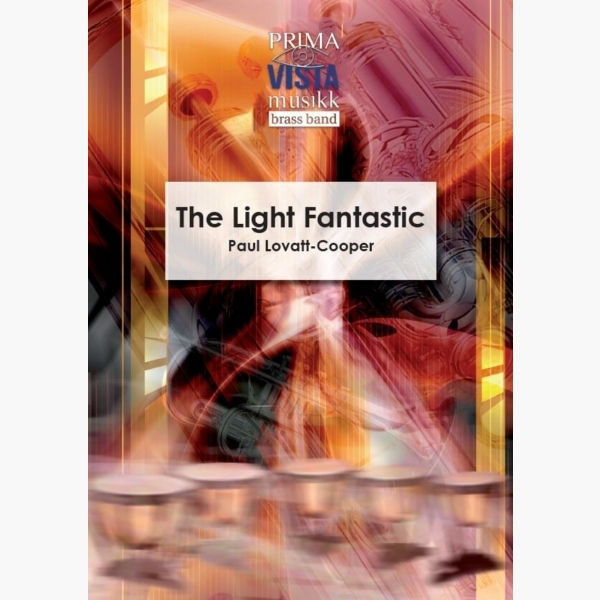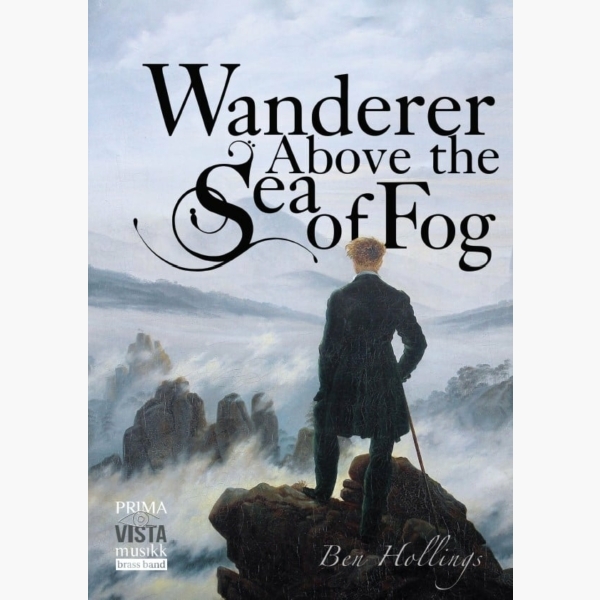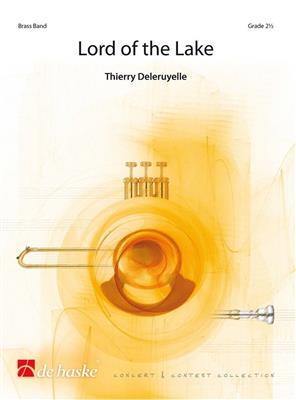Results
-
 £34.95
£34.95The Light Fantastic - Paul Lovatt-Cooper
The Light Fantastic was commissioned by Leeds Metropolitan University to use during their promotional presentations whilst on a joint tour of China with the Northern Ballet Orchestra during the 2008 Olympic Games. The music aims to encapsulate the grandeur and...
Estimated dispatch 5-7 working days
-
 £24.95
£24.95Wanderer Above the Sea of Fog - Ben Hollings
Wanderer Above the Sea of Fog was commissioned by Leigh Baker and the Carlton Main Frickley Colliery Band, for the 2014 Brass in Concert Championships at the Sage, Gateshead. The theme for the programme was a modern take on Mussorgsky's...
Estimated dispatch 5-7 working days
-
£34.95
NEW BORN BABE, The (Brass Band Set) - Bruce Broughton
The chorale which forms the basis of this prelude dates from the sixteenth century and was used by J.S.Bach in his Cantata No.122, 'Das neugeborne Kinderlein'. On his score Bruce Broughton includes a translation by R. Rutledge of the words; 'There comes the true jubilee, what are we eternally lamenting? Look alive! It is a time for singing, for the Christ-child exorcises all sorrow'.
Estimated dispatch 7-14 working days
-
£34.95
SAINTS ON PARADE (Brass Band Set) - Kevin Norbury
Originally composed for the 2004 UK tour by the New York Staff Band, this American-style concert opener contains three well-known tunes which are subjected to a range of musical styles synonymous with the USA. 'Always cheerful', 'I've got the joy, joy, joy, down in my heart' and 'O, when the saints go marching in' are given the marching band, big band and Sousa-style march treatment.
Estimated dispatch 7-14 working days
-
£24.95
DAVID OF THE WHITE ROCK (Cornet Solo with Brass Band Set) - Ray Bowes
This melody is reputed to have originated in Caernarvonshire, North Wales. Tradition holds that a bard called David, lying on his deathbed, called for his harp and performed this plaintive tune, expressing a desire that it should be played at his funeral. Ever since the tune has been called by his name and that of his house 'Garagwen' ('Druid Stone' or 'White Rock'). The solo is not just a slow melody with brass band accompaniment but is a composite whole, the band needing as much sensitivity as the soloist in the presentation.
Estimated dispatch 7-14 working days
-
£34.95
PROCLAMATION OF CHRISTMAS, The (Brass Band Set) - Stephen Bulla
A clever and lively medley of Christmas carols by Stephen Bulla, Chief Music Arranger for the Band of the US Marines. Featuring the well known carols 'Hark the herald angels sing', 'Ding dong merrily on high', 'The first Nowell', 'While shepherds watched' and 'Angels from the realms of glory'.
Estimated dispatch 7-14 working days
-
£59.95
VARIATIONS ON 'MACCABEUS' (Brass Band Set) - Kevin Norbury
This set of variations was composed for the ISB's tour of Australia, New Zealand and Japan in 1995. Handel's majestic tune is associated with the great resurrection hymn 'Thine is the glory, risen, conquering Son' and melodic fragments of the tune form the basis of the four variations. The tune is heard in its entirety at the beginning and near the end and the piece finishes with a vigorous coda.
Estimated dispatch 7-14 working days
-
 £64.99
£64.99Lord of the Lake - Thierry Deleruyelle
Lord of the Lake is a work in three separate movements which tells the legend of the "Sea of Flines". Stephane Coquet, the conductor of the Flines-lez-Raches concert band, wanted to celebrate the 140th anniversary of his band by commissioning this work. The piece can be performed either on its own, or with a narrator who intervenes between each movement, telling this legend where children and their parents thwart the cruelty of a lord holed up in his castle.
Estimated dispatch 5-14 working days
-
 £53.50
£53.50Someone in the Crowd
La La Land - the film of 2017 - boasts a record number of Golden Globe Awards, including Best Original Score for Justin Hurwitz, and garnered an impressive number of Oscar nominations as well. One of the most appealing songs from this captivating film, Someone in the Crowd, is now also available in a sparkling brass band version, guaranteed to put a smile on every listener's face. Relive the magic of La La Land with the vivacious sounds in this fantastic arrangement full of positive vibes!
Estimated dispatch 5-14 working days
-
 £115.60
£115.60At the Zoo - Hilde Høyvik Dahl
"At the Zoo" is a light and playful piece for the beginning musicians.Different animals and their characteristics are the theme of each movement, and the melody alternates between the different sections of the band to emphasize this. Trombones play glissandos and the percussionists are featured on percussion instruments, making the piece a fun to perform at any concert!
Estimated dispatch 5-14 working days
